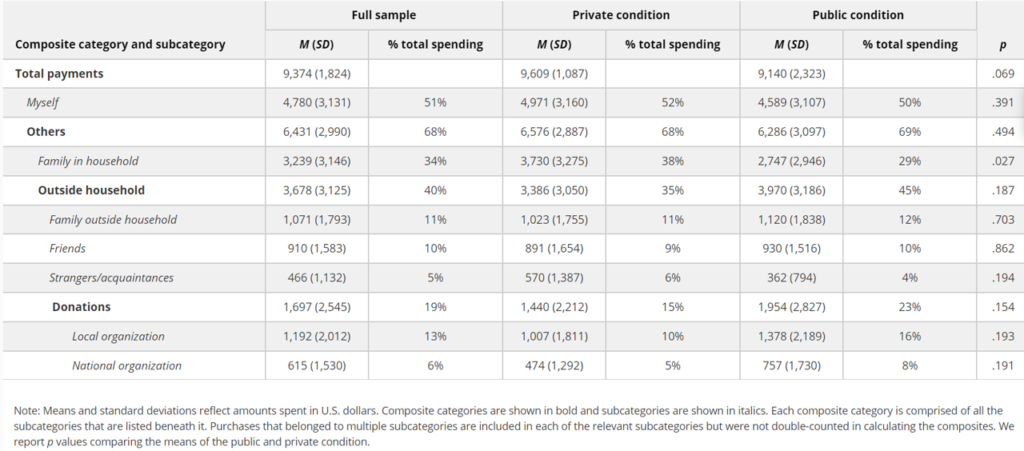
[ad_1]
The paradigm of homo economicus–a superbly rational, self-interested consumer–will have taken a success in line with the findings of a paper by way of Dwyer et al. (2023). The authors goal to inspect how other folks spend providence income the usage of a randomized experiment.
We took good thing about an extraordinary alternative to inspect generosity amongst a various pattern of adults who won a present of U.S. $10,000 from a couple of rich donors, with just about no strings hooked up. Two-hundred individuals have been drawn from 3 low-income nations (Indonesia, Brazil, and Kenya) and 4 high-income nations (Australia, Canada, the UK, and the USA) as a part of a preregistered learn about. On moderate, individuals spent over $6,400 on purchases that benefited others, together with just about $1,700 on donations to charity, suggesting that people showcase outstanding generosity even if the stakes are excessive.
One rationale for this habits was once that it was once standing improving. That is probably not the case.
To handle whether or not generosity was once pushed by way of reputational issues, we requested part the individuals to percentage their spending choices publicly on Twitter, while the opposite part have been requested to stay their spending personal. Beneficiant spending was once equivalent between the teams, by contrast to our preregistered speculation that improving reputational issues would build up generosity.
This discovering, alternatively, does no longer absolutely deal with that reputational issues don’t seem to be at play right here. Whilst one’s recognition on Twitter is probably not significant, one’s recognition a few of the individuals who won cash and amongst one’s friends obviously does play a task. The authors declare that the $1,700 going purely to charity didn’t alternate, alternatively there was once a ~$500 distinction (donations personal = $1,440 vs. donations posted on Twitter = $1954, p=0.154). Whilst no longer statistically vital, that is a few 30% build up in donations. may be spectacular in appearing that individuals need to percentage their wealth. The authors discovered that circle of relatives had the most important have an effect on on spending choices however in-person pals and social media performed a fairly equivalent position in decision-making a few of the randomized teams who posted their donations on Twitter.
The authors do notice that “…individuals have been mindful that they have been a part of an experiment wherein they might file their spending alternatives…[which] will have spurred them to spend cash (or file spending it) in socially fascinating tactics.”

You’ll learn the overall paper right here.
[ad_2]